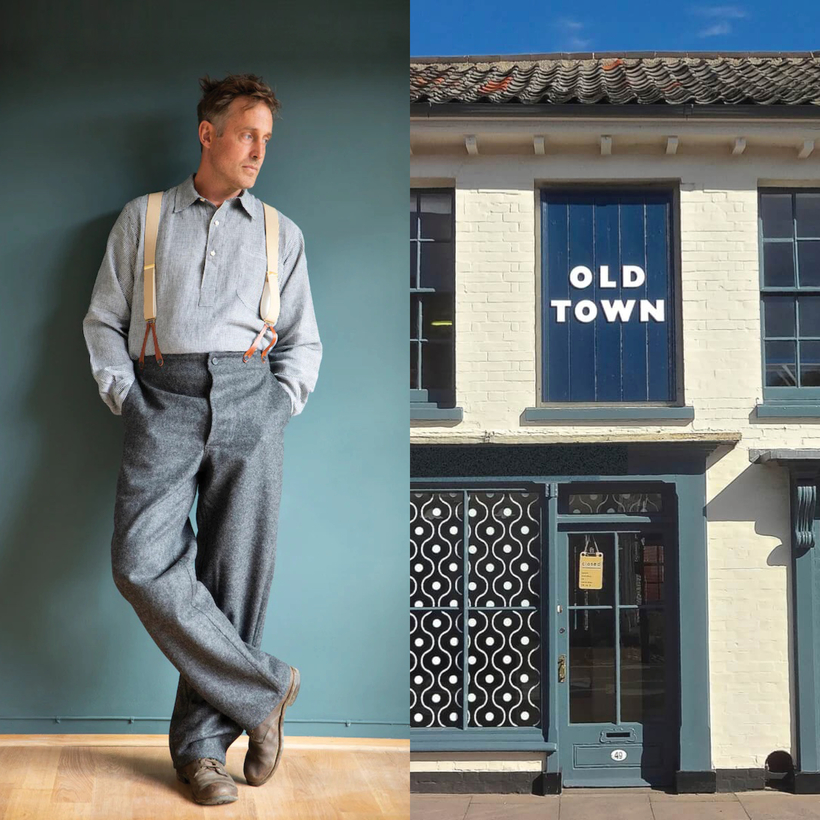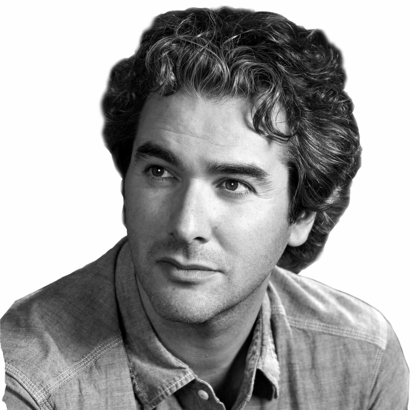The tyranny of the skinny pant is over. From Harry Styles’s wide-legged trousers to J. Crew’s new range of “Giant” fit chinos that sold out within minutes in August, a cooling breeze of liberation can be felt wafting up a gentleman’s leg. But Old Town, a British clothing purveyor on the picturesque and fashionable Norfolk coast, has been making wide, high-waisted men’s trousers for 30 years.

Old Town was founded by the couple Marie Willey and Will Brown in 1992. Brown had previously made clothes for David Bowie (the pink jumpsuit and duster coat he wore in the video for his 1979 song “DJ”) and had a workshop in London’s now gentrified Bermondsey neighborhood. But at the time the area was “just too grim,” and the workshop was burgled regularly. Willey, who worked in P.R., decided they should leave their beloved London and settle in the much sleepier environs of Norwich, two and a half hours, and a world, away.
“It probably wasn’t one of our better moves,” laughs Willey, “but it meant that we had to make it work.” It was in Norwich that they created Old Town, a brand that stood apart from fashion as the pair had come to stand apart from London. They sold clothes via mail order, but soon Londoners began flocking to Norwich to buy them in person. When Willey and Brown relocated to the even sleepier village of Holt, their customers followed them there too. If one day they decide to move to a floating barge in the middle of the North Sea, one imagines their customers would paddle out to them without complaint.

Willey freely admits that their clothes have changed little over the past three decades. But because fashion is cyclical, they have often led the way simply by standing still. Before the slow-fashion movement, Old Town was making clothes to last, at their own speed to ensure quality, with a small group of local machinists, cutters, and button sewers. And they were making straight-edge vests and high-waisted trousers long before the Peaky Blinders–inspired workwear revival.
A Wearable Bauhaus
Some two dozen items currently for sale include bungalow dresses and smocks that hearken back to a half-imagined postwar Britain. Vauxhalls and Stove Pipe trousers feature brace buttons and deep pockets. Orford trousers channel the simple, rugged seafaring jeans of fishermen. Although “utilitarian” is the word most often used to describe their clothes—and it’s true that you can wear them to paint a fence or attend a cocktail party—they are far from drab. These clothes are tough yet clean and simple, a wearable Bauhaus, Constructivist fashion in its truest sense. This very particular universality has attracted a coterie of devoted customers from the United States, Australia, Japan, and Korea.

Old Town makes clothes to order, not to measure. You choose a style, size, and fabric, and they make it up for you, usually within six to eight weeks. It’s a purposefully old-fashioned way of doing things; some might say anti-commercial. Willey describes it as the “slowest-growing business you could ever find.” Around 70 pieces are made each week, for not unreasonable prices. Their most popular line at the moment is the Unity Suit, a matching unlined-jacket-and-trousers combo that replicates the comfort and style of a jumpsuit, without any of the difficulty of putting one on. Jacket and trousers cost around $300 in drill, denim, wool, or linen.

The coronavirus was a mixed blessing for Willey and Brown. They had to close their shop, but they saw an influx of orders. In addition to individual customers, they provide uniforms to luxurious country spas and restaurants such as Broughton Hall Estate, in Yorkshire, and Brat restaurant, in London. The only cloud on the horizon is age. “We’re quite tired,” says Willey, who, like Brown, is 66. They’d like to sell the business at some point, but, characteristically, they’re in no hurry. For now, they will carry on crafting timeless clothes with precision, passion, and restrained panache.
George Pendle is an Editor at Large for AIR MAIL. His book Strange Angel: The Otherworldly Life of Rocket Scientist John Whiteside Parsons became a television series for CBS All Access. He is also the author of Death: A Life and Happy Failure, among other books


